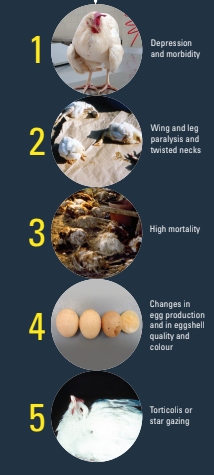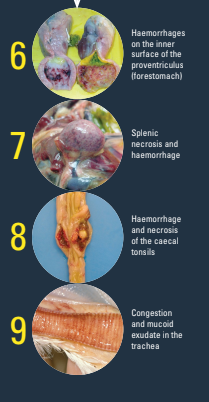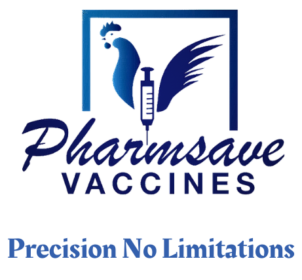Newcastle Disease is a highly contagious viral disease that primarily affects birds, including poultry. It’s caused by the avian paramyxovirus type 1 (APMV-1).
Sign and Symptoms of Newcastle Disease

- Depression and morbidity
- Wing and leg paralysis and twisted necks
- High mortality
- Changes in egg production and in eggshell quality and color
- Torticolis or star gazing
What can be seen from Chicken that have died from Newcastle Disease
- Haemorrhages on the inner surface of the proventriculus (forestomach)
- Splenic necrosis and haemorrhage
- Haemorrhage and necrosis of the caecal tonsils
- Congestion and mucoid exudate in the trachea

The symptoms of Newcastle Disease can vary depending on the strain of the virus and the age and health of the birds. However, some common signs include:
- Respiratory problems: Coughing, sneezing, and difficulty breathing
- Nervous system disorders: Twirling, paralysis, and tremors
- Digestive issues: Diarrhea, decreased appetite, and greenish-colored droppings
- Reduced egg production: Misshapen eggs or decreased egg output
- Sudden death
Causes and Transmission
Newcastle Disease can be transmitted through various means, including:
- Direct contact: Contact between infected and healthy birds
- Contaminated equipment: Infected feed, water, or equipment
- Airborne transmission: The virus can spread through the air
Prevention and Control
The most effective way to prevent Newcastle Disease is through vaccination. Regular vaccination programs can help protect poultry flocks from infection. Additionally, implementing strict biosecurity measures can help reduce the risk of disease transmission. These measures include:
- Quarantine: Isolating new birds for a period before introducing them to the flock
- Hygiene: Maintaining a clean and disinfected environment
- Biosecurity: Restricting access to the poultry facility
- Monitoring: Regularly monitoring birds for signs of illness
Vaccination For Newcastle Disease
Live vaccines used as primer and booster vaccines in rearing, and for local protection of
the upper respiratory tract in rearing and production
Inactivated vaccines for long term protection in long live birds and early protection of chicks
from vaccinated parents
Check out the Vaccination schedule – Click Here
Recommend Vaccines:
If you have concerns about Newcastle Disease or any other poultry health issues, it’s recommended to consult with a veterinarian

